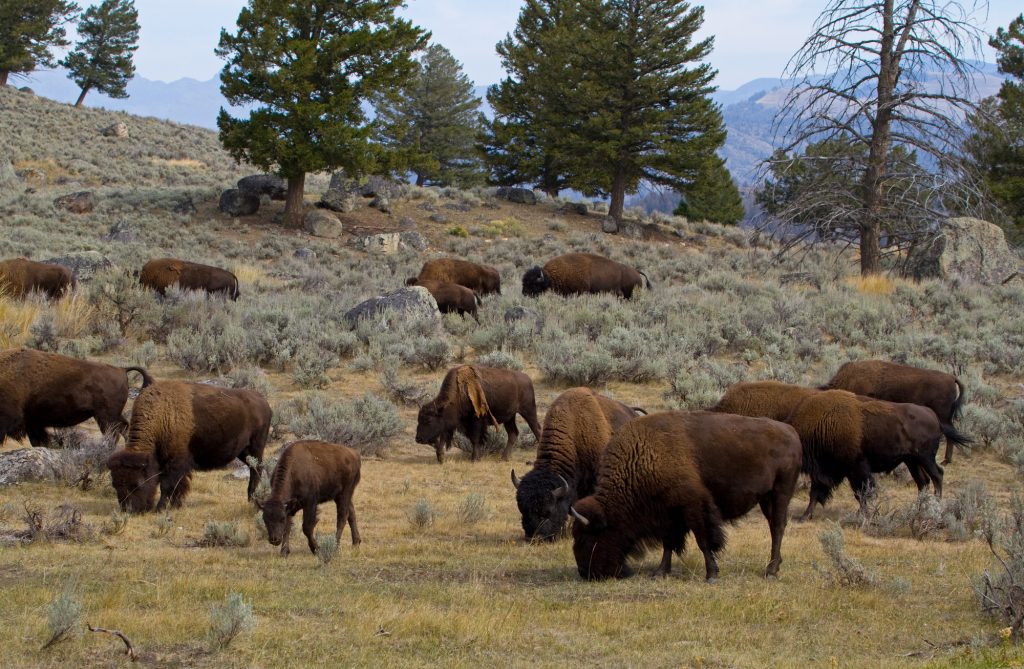Short Pitches on All of These Patches
A Sort of Table of Contents
Here’s a breakdown of the patches that you are about to read.
1. The Overpatch: Learning in a Cohort
by Fleming College President, Dr. Tony Tilly
This is the big picture patch, which focuses on cohort learning in the college system. This patch is like a nice throw blanket to put over top of our community quilt to keep us cozy.
2. We’re Only Making Plans For Learning
by Jodie Black and Terry Greene, Fleming College
Teaching is like Tetris, obviously, so use some Universal Design for Learning principles in your lesson planning to help meet the needs of all the variability in your learners.
3. Roam If You Want To
By Ryan Hill, Fleming College
Early on in your course, you may want to take the time to ‘roam around the known’ with your learners. In other words, dig in to and share the collective backgrounds of your learners to see what is already known about what we want to learn.
4. Check, Check 1-2 – Checking in With Students
by Mary Overholt, Fleming College
Classroom Assessment Techniques. Also known as checking in that we’re understanding each other while we are learning.
5. We have to Go Deeper
By Joanna Hodge and Laura Gibson, Fleming College
Joanna discovered early in her teaching career that ‘chalk and talk’, a.k.a. delivering all your content through lecture, just doesn’t cut it. Here she provides an example of a way to help students to deeper understanding by creating their own reference manual and Laura describes why it is so awesome.
6. The Shift Keys – Shifting Your Design of Assessments
by Maha Bali and Azzah Awwad, American University in Cairo, Egypt
The way you remember being tested and assessed in your own education probably could have been better. More authentic. More real. Here are some tips for how to do so.
 7. Sheets Ain’t Cheats
7. Sheets Ain’t Cheats
By Katrina Van Osch Saxon, Fleming College
Cheat sheets have a bad rap. It’s even implied right in the name that cheat sheets are cheating. This patch is here to tell you that that isn’t true at all and to make an impassioned plea to let your students use them.
8. So… Whatcha Thinking About?
by Jennifer Ramsdale, Fleming College
Finding out what students are thinking and how they are understanding things is oh so helpful. Here are some ways to elicit and interpret student thinking.
9. Adjusting On The Fly
By Terry Greene and Jodie Black, Fleming College
This skill is the basic footwork of pedagogy. It keeps you light on your feet and ready for anything. Okay, not anything. Ready for lots of things, though. There is really not much to it but thinking ahead and planning for changes to your plans as you go.
10. Here’s My Interpretation – Interpreting Student Work in Laboratory Assessments
by Kari Draker- Fortis, Fleming College
Set in a science lab, Kari writes about her experience in truly considering what it was she was asking students to do in labs and how that affected student preparedness, engagement and effort.
 11. Why is This Important?
11. Why is This Important?
by Kisha G. Tracy, Fitchburg State University in Massachusetts
Sometimes (or most of the all the time) you may need to ‘hook’ your students on your topic. A bit of a sales pitch on the importance of your topic can really help. This patch shares one fine way to do so.
12. Bigfoot and Blind Spots – Respecting Students
By George Fogarasi, Fleming College
Respect, a no-brainer in daily life, is more complex in a classroom. George writes words that get us thinking about giving and getting respect.
 13. Partner Up – What We Learned from Co-Teaching
13. Partner Up – What We Learned from Co-Teaching
By Maha Bali, Hoda Mostafa and Sherif Osman of The American University in Cairo
Often the course you are teaching is not just yours. Guess what? There are amazing benefits and some challenges to sharing students and resources with other teachers. This patch fills you in on those details.
14. The Greater Good – Group Work
by Maxine Mann, Fleming College
Why are you really doing group work? To save yourself some marking or because it truly is the path to achieving course outcomes? If you’re going to do it, do it right. Here are some guidelines.
15. The Feedback Loop de Loop – Feedback as a Success Strategy
By Helen Bajorek-MacDonald and Susan Hyndman, Fleming College
How might we better encourage our students to accept feedback not as a static representation through a ‘grade’, but as an evolving conversation between instructor and student about the student’s work and ways in which a student might advance their skills – over time? Read this patch to find out.
16. On The Map – Mapping the U.N. Sustainable Development Goals to Learning Outcomes
By Jenni Hayman, eCampus Ontario
One of the best ideas ever in learning is to connect the work that students do to real world issues or goals or applications. So how about connecting your learning outcomes to the U.N. Sustainable Development Goals? Good idea!
17. The “Pertnear”
by Tom Mikel, Fleming College
As this is nearly the last patch of this, the first Patchbook we are “pertnear’ finished (i.e. ‘pretty near’ finished). So how about a patch about how it’s okay to make mistakes. Okay!

18. Just Listen – Empathy and Science Pedagogy
by Chuck Pearson, Tusculum College
Chuck Pearson puts himself into his student’s shoes so well here that you’ll wonder if he even owns any of his own.
19. Lost and Found – Course Designs that Map it Out
by Helen DeWaard, Lakehead University, Orillia
This patch simultaneously ties these patches all together and gets us started thinking about course design. If you are fairly new to teaching, you may not have had the chance to do much course design yet. By reading this patch now, you’ll have less mountain to climb and an easier time finding your way to the top.
20. We’re Total Pro – Professional Learning
by Alana Callan, Fleming College
Alana takes all that we’ve talked about and pushes us into the realm of professional learning. What are you going to do next to improve your teaching and learning? How are you going to plan it out and how are you going to share what you’ve learned? This patch includes some ideas for doing that, obviously.
21. In Sync – Thoughts On Sync Video Conversations
By Autumm Caines, Capital University in Columbus Ohio
This patch is a preview of another iteration of The Open Faculty Patchbook, which will focus on professional learning. Online video chatting is a great way to connect with and learn from people anywhere. Autumm gives us tips on how to do it right.
22. Be Kind Online -Strategies to Promote Productive Online Student Behaviours
By Jessica O’ Reilly, Cambrian College
Learning online is different than in person. Who knew? Here are some tips to set the online stage apart from the in-class classroom. A preview of a future Patchbook on Digital Pedagogy.
image attributions
- image: “In Flight” flickr photo by Don McCullough https://flickr.com/photos/69214385@N04/9345257093 shared under a Creative Commons (BY) license
- photo: “angry square” flickr photo by calamity_sal https://flickr.com/photos/calamity_sal/5010274744 shared under a Creative Commons (BY) license
- featured photo credit: “Bison 3” flickr photo by ahisgett https://flickr.com/photos/hisgett/8007262086 shared under a Creative Commons (BY) license
- “Check the mic” flickr photo by optikfluffel https://flickr.com/photos/optikfluffel/13402753244 shared under a Creative Commons (BY) license
- featured image: “Mine Shaft” flickr photo by OctopusHat https://flickr.com/photos/octopushat/4292337318 shared under a Creative Commons (BY-SA) license
- image credit: “Shift” flickr photo by Slack pics https://flickr.com/photos/slackpics/4261060942 shared under a Creative Commons (BY) license
- Featured image “Sneaky” flickr photo by Larry Smith2010 https://flickr.com/photos/lsmith2010/5418741294 shared under a Creative Commons (BY) license
- image: “Flying Thoughts” flickr photo by Marco Nürnberger https://flickr.com/photos/mnuernberger/25935543665 shared under a Creative Commons (BY) license
- “120328 Boxing-20” flickr photo by fiverlocker https://flickr.com/photos/fiverlocker/6882942276 shared under a Creative Commons (BY-SA) license
- “Beakers” flickr photo by Amy Loves Yah https://flickr.com/photos/amylovesyah/4313313514 shared under a Creative Commons (BY) license
- featured image credit:”Palmyra” flickr photo by reibaihttps://flickr.com/photos/reibai/2600778614 shared under a Creative Commons (BY) license
- Featured image: “bigfeet” flickr photo by veritatem https://flickr.com/photos/veritatem/24378073 shared under a Creative Commons (BY) license
- Featured Image Credit: “teddy-1361397” flickr photo by Vormingplus.foto https://flickr.com/photos/46554667@N07/33165171992 shared into the public domain using (CC0)
- Featured image: “Teamwork” flickr photo by byrawpixelhttps://flickr.com/photos/byrawpixel/34034856490 shared into the public domain using (CC0
- Feature Image: “The Blades, Airbourne, Eastbourne, August 2013” flickr photo by vic_burton https://flickr.com/photos/vicki_burton/9584334822 shared under a Creative Commons (BY-SA) license
- image credit: “Must Bee Heaven” flickr photo by Ian Sane https://flickr.com/photos/31246066@N04/34369197611 shared under a Creative Commons (BY) license
- image from the Women in Trees Conference at Frost Campus in Lindsay, Ontario by Leigh Mceachran, 2017
- “donkey’s ears” flickr photo by Jeanne Menjoulet https://flickr.com/photos/jmenj/9613683203 shared under a Creative Commons (BY) license
- featured image: “Wayfinding” flickr photo by karen_neoh https://flickr.com/photos/kneoh/14931664552 shared under a Creative Commons (BY) license
- featured image: “BMX Fly 2” flickr photo by DAV.eshttps://flickr.com/photos/despedidairene/6155777470 shared under a Creative Commons (BY) license
- http://virtuallyconnecting.org/photos/4/
- “A dash of carrot, a dollop of stick” created by Christopher Cook, third year Graphic Design Student, Cambrian College






